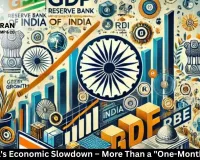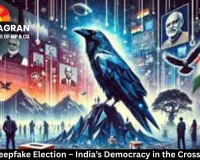Supreme Court's Adjournment in Sonam Wangchuk's NSA Detention Case: Justice Delayed or Democracy Denied?
Digital Desk

In a move that's raising eyebrows across India's activist circles, the Supreme Court on October 15, 2025, adjourned the hearing on climate warrior Sonam Wangchuk's plea for release under the draconian National Security Act (NSA) until October 29.
This isn't just a procedural hiccup—it's a stark reminder of how national security pretexts can muzzle voices championing environmental justice and regional autonomy. As Ladakh's iconic figurehead battles solitary confinement in Jodhpur Central Jail, one can't help but question: Is this protection of the nation or persecution of dissent?
Sonam Wangchuk, the engineer-turned-activist immortalized in Bollywood's 3 Idiots, has long been the beating heart of Ladakh's push for Sixth Schedule protections under the Indian Constitution. This tribal safeguard aims to preserve the fragile Himalayan ecology from unchecked development, corporate greed, and climate catastrophe. Wangchuk's non-violent protests—marches, fasts, and impassioned pleas—have spotlighted how Ladakh's unique biodiversity teeters on the brink. Yet, on September 26, 2025, he was whisked away to Rajasthan under NSA, slapped with grave charges like alleged ties to Pakistan's ISI and illicit foreign funding. Sound familiar? It's the same shadowy script used against journalists, farmers, and human rights defenders, where "security threats" conveniently silence uncomfortable truths.
The October 15 hearing before Justices Arvind Kumar and N.V. Anjaria offered a glimmer of hope. Senior advocate Kapil Sibal, representing Wangchuk's wife, Geetanjali J. Angmo, argued for amendments to the petition, challenging the very grounds of his arrest. In a poignant courtroom moment, the bench permitted Wangchuk to share handwritten notes critiquing his detention—notes that prison authorities had initially blocked, citing "fundamental rights violations." Geetanjali's heartfelt X post later captured the family's resilience: "We trust the judiciary, the Constitution, the media, and the people of India." Accompanied by a photo of her with Sibal outside the court, it went viral, amassing thousands of shares and underscoring the human cost of this saga.
But here's where the optimism falters. The Leh District Magistrate's affidavit defends the arrest as "legally sound," claiming "satisfactory grounds" exist—vague enough to evade scrutiny. Jodhpur jail officials, meanwhile, insist Wangchuk receives "no special treatment," housed in isolation yet afforded standard inmate rights. Isolation? In a region where his movement once drew global acclaim for sustainable innovation, this feels like poetic injustice. Ladakh's protests turned violent earlier this year, claiming lives amid demands for statehood and ecological safeguards. Wangchuk's role? Not incitement, but inspiration—a cry against Delhi's top-down policies that prioritize mining over melting glaciers.
From an opinion standpoint, this NSA invocation reeks of overreach. The Act, meant for existential threats like terrorism, has morphed into a tool for quashing legitimate activism. Remember the 2024 farmers' stir or the 2020 CAA protests? The pattern is chilling: Arrest first, evidence later—if at all. Wangchuk's case amplifies a broader crisis in India's democracy, where climate activists are branded "anti-national" for defending the planet we all share. With COP30 looming in 2025, silencing Ladakh's guardian isn't just myopic—it's suicidal. The Himalayas aren't just geography; they're India's water tower, feeding rivers that sustain 1.9 billion people downstream.
Geetanjali vows amendments to the plea before the next hearing, probing the arrest's flimsy foundations. Will the Supreme Court rise to the occasion? History suggests caution—delays often dilute urgency. Yet, Wangchuk's unyielding spirit, echoed in his smuggled notes, reminds us: True security lies in amplifying voices like his, not burying them in bureaucratic black holes.
As India grapples with escalating climate woes—floods in Assam, droughts in Maharashtra—Wangchuk's fight is ours. Citizens, media, and allies must rally: FreeSonamWangchuk isn't a hashtag; it's a clarion call for constitutional fidelity. The October 29 date looms large. Let it mark not adjournment, but awakening.



.jpg)






.jpg)
